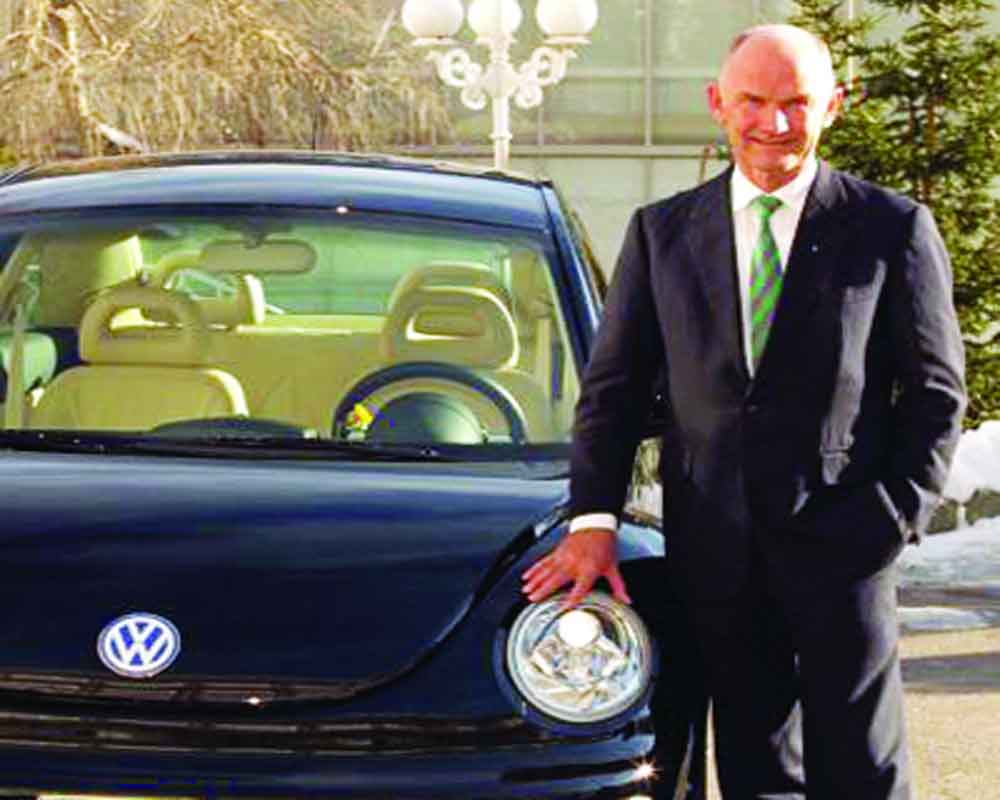There have been a few other automotive engineers and executives who managed what Piech did in the modern era
The automotive history has several notable figures, many of whom gave their names to eponymous brands — Ford, Honnda, Toyota (Toyoda, actually) and many others, including Ferdinand Porsche. The last was a legendary man. Born in a crumbling Austro-Hungarian Empire, he conjured up an early electric car and even a hybrid, and although not trained as an engineer, the Austrian became one of the most famous names in the automotive history when he designed the ‘Volkswagen’, a car we know as the Volkswagen Beetle. Of course, the birth of the Beetle in Nazi Germany might stain the history of the car a bit but the car, once in the Wolfsburg factory, was revived by the British Army Engineer, Ivan Hirst. It laid the foundations for the gigantic Volkswagen Automotive Group that today encompasses not just Volkswagen but also Audi, Skoda, SEAT, Lamborghini, Bentley and Bugatti. And there is another company — Porsche.
The history between Volkswagen and Porsche is a complicated and convoluted one but the eventual merger of the two firms was in no small part due to the internecine battle between members of the Porsche family. An Ferdinand Piech won. The grandson of the founder of the company defeated his cousins who had attempted to buy Volkwagen.
That feat alone, reading about the complex financial instruments and the back and forth deals, global travel hunting for investors, corporate spying and what not can make the head spin. And for that feat alone, bringing Porsche back into the fold in a matter of speaking should make Piech’s name legendary among automotive executives of the modern era. But this is where the grandson of Ferdinand Porsche, whose name he was given, is so, so special for automotive enthusiasts like me. This name was a legendary engineer and an expert of the manufacturing process in a way not seen since Henry Ford.
The entire modern automotive manufacturing process is based on platforms. Different models can serve different needs but are based on the same platform. Piech was the father of that concept and took it further than anyone had before. Platforms fix mundane things that many people do not notice, such as the distance between the front axle and the firewall that divides the engine compartment from the passenger cabin. Different cars can share not just their underpinnings but engines, suspensions and of course, interior components. The Volkswagen Golf, a car unfortunately not sold in India, formed the basis for cars like the Audi A4, Skoda Octavia and the Volkswagen Tiguan. This simple idea was so revolutionary that every mass-market manufacturer follows it today. It not only makes manufacturing simpler but also dramatically cuts development costs and allows car makers to offer many more options; the Suzuki HEARTECT platform is the same from the WagonR to the Ertiga.
But he could take decisions as a young engineer that others would hesitate to take. He once gambled Porsche’s future developing a small limited number of 917 race-cars as regulations those days meant manufacturers had to build 25 cars to be eligible to take part in the competition. The Porsche 917 went on to become one of the most successful single model of race cars ever built and made Porsche’s name among the fans of sporty cars. The current success of the 911 or even the future success of something like the Taycan Electric Vehicle that the company just launched will be in part due to the 917. Then there was Audi’s revolutionary Quattro system, a pioneering all-wheel drive system that a thirty-something Piech led development on. This was fitted on the legendary Audi Quattros of the 1980s among whose drivers were a Frenchwoman, Michele Mouton, one of the only women to have competed in top-level motorsport and hold her own, coming second in the World Rally Championships in the year 1982.
Then a few days ago, the Bugatti Chiron set a world record as it crossed the 300 miles per hour mark, which is the fastest speed ever recorded by a road car. The Chiron’s interiors are super luxurious and you can potentially go at those speeds bathed in leather, air-conditioning, all while listening to soothing music, if you want to. The Chiron is the successor to the Veyron, an equally ridiculous world-record beating car. A car that Piech told his engineers to build, no matter at what cost. It is impossible, therefore, to find another icon of the automotive world in the modern age. Sure, he had his flaws like every human has but right now we should remember the passing of this legend because I personally doubt we will see another like him in the future.


























